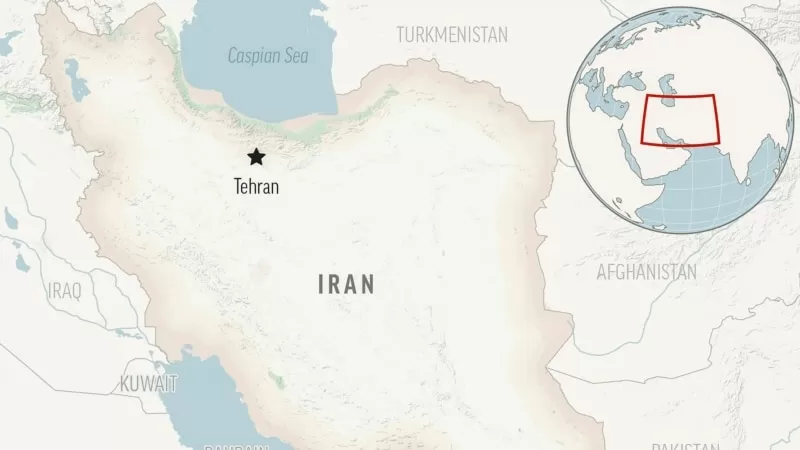Tensions between the United States and Iran have recently escalated following the death of three American soldiers in a drone strike in Jordan. President Joe Biden has blamed “radical Iran-backed militant groups” for the attack and has promised a “very consequential” response. This has caused speculation about the possibility of a full-blown war between the two long-time enemies. However, both sides have emphasized their desire for peace, leaving Iranians uncertain about what the future holds.
Commentators in Iran have expressed concern over the possibility of a direct military attack by the United States. Ahmad Zeidabadi, a political analyst, wrote in the Ham-Mihan newspaper that the U.S. may target Iranian forces in other countries. This fear has caused the Iranian rial to reach an all-time low against the U.S. dollar on the black market. The Etemaad Daily also suggested that the Biden administration, under pressure from Republicans, may target strategic locations within Iran, which could potentially lead to the end of diplomatic efforts between the two countries.
Despite these concerns, some believe that a direct confrontation between Iran and the United States is unlikely. Shargh newspaper stated that both countries have shown in the past their ability to contain direct conflicts. The Iran Daily, however, warned against any “insane move” by the U.S. and urged President Biden not to be “duped into a direct military attack on Iran.” They stressed that any such action would result in a proportionate response from Iran, potentially leading to a full-blown war.
The United States and Iran have a long history of animosity, dating back to the 1979 Islamic Revolution. This has been further exacerbated by the ongoing tensions surrounding Iran’s nuclear program and the actions of U.S. ally Israel in the region. The U.S. and Israel have accused Iran-backed militant groups of fighting proxy wars in Lebanon, Iraq, Syria, and Yemen. In 2020, former President Donald Trump ordered the killing of a revered Iranian commander, Qasem Soleimani, in Baghdad.
The recent violence in the region, sparked by the Israel-Hamas conflict, has further heightened tensions between the U.S. and Iran. While Iran has expressed support for Hamas and other militant groups, they have maintained that these groups are acting independently. They have also accused the U.S. of being complicit in Israel’s actions in Gaza.
In response to the Jordan attack, Iran summoned the British ambassador to protest an unspecified “accusation” against the Islamic Republic. This comes after Britain, along with the U.S., imposed sanctions on a network they believe targets Iranian dissidents. The U.S. has also accused Iran of involvement in attacks on their forces in the Red Sea and other parts of the Middle East. Iran’s ambassador to the United Nations, Amir Saeid Iravani, reiterated that no group affiliated with Iran’s armed forces operates under their control.
Despite the tensions, China and Russia, both of which have friendly ties with Iran, have urged de-escalation and restraint. China has warned against a “cycle of retaliation” in the Middle East, while Russia has called for a political solution to the crisis. It is clear that neither side wants a full-blown war, and diplomatic efforts are still active.
In the midst of these uncertainties, it is important to remember that war is not the solution. The solution to this crisis must be political, as stated by Iran’s Foreign Minister Hossein Amir-Abdollahian. The people of Iran and the United States do not want to see their countries at war, and it is crucial for both sides to exercise restraint and seek peaceful resolutions.
In conclusion, the recent events have caused tension between the United States and Iran. However, both sides have expressed their desire for peace and have emphasized the need for a political solution. It is important for all parties involved to exercise restraint and avoid any actions that could escalate the situation further. War should not be an option, and it is up to the leaders of both countries to work towards a peaceful resolution. The world is watching, and we hope to see a de-escalation of tensions and a return to diplomacy.

